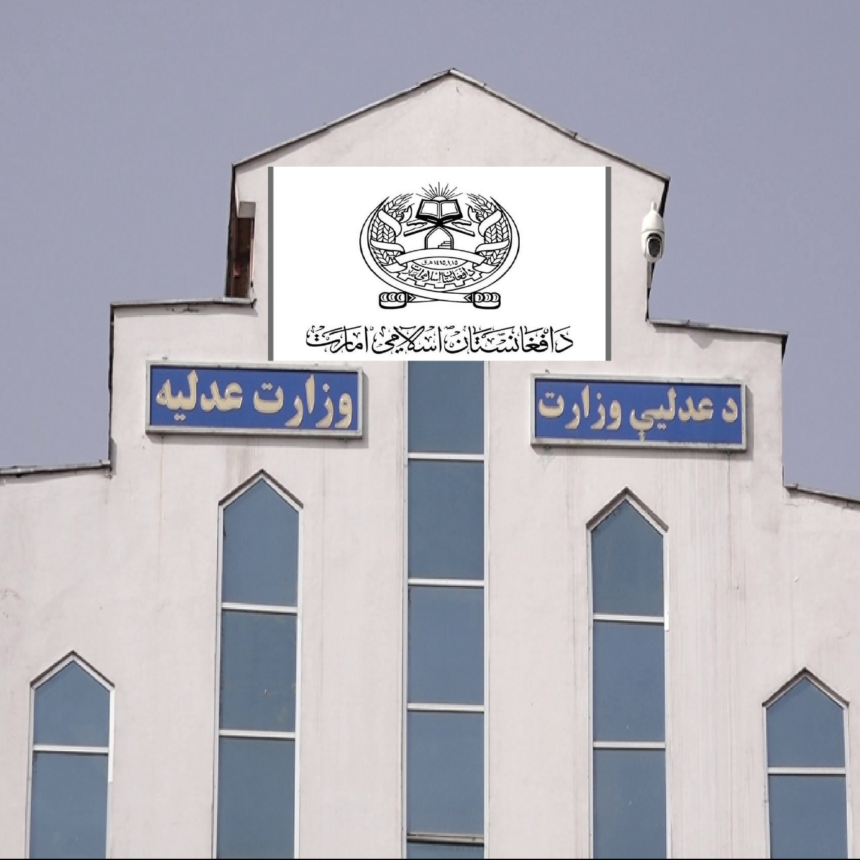RASC News Agency: The Taliban’s self-styled Ministry of Justice has announced that, following the creation of a so-called “Commission for the Prevention of Land Grabbing,” nine townships across several Afghanistan’s provinces have been brought under the group’s direct control. In a statement issued on Saturday, November 1st, the ministry claimed that the seized townships encompass over 50 jiribs of land, asserting that the takeover was carried out in accordance with what the group terms “Sharia decrees.”
The townships reportedly targeted include Mullah Tarakhil, Sardar Mohammad Daoud Khan, and Mullah Izzat in Kabul; Khalid bin Walid in Balkh; Shahr-e-No in Maidan Wardak; Hakim Sanai and Nowabad in Ghazni; and Haji Qadir and Ishaq Gilani in Nangarhar. Beyond these nine localities, the Taliban further claim that approximately four million jiribs of land across Afghanistan have been brought under their control over the past four years, ostensibly as part of the same initiative.
Despite these proclamations, the process behind these seizures remains opaque, arbitrary, and deeply troubling. No official documentation, evidence-based reports, or transparent records regarding the evaluation of ownership, verification of titles, or the rationale behind these so-called Sharia decrees have been published. This glaring lack of transparency has prompted widespread skepticism among local residents, legal experts, and civil society observers, who increasingly view these measures as a tool to consolidate Taliban power rather than enforce justice.
Local sources indicate that many residents were entirely unaware of the commission’s rulings and had no opportunity to challenge the decisions or submit proof of ownership. The absence of a clearly defined, accountable review process has raised serious questions about the legitimacy of these seizures, with critics asserting that the Taliban’s actions violate fundamental property rights and are motivated more by political expediency than by legal or religious principles.
Legal analysts warn that without transparency and impartial oversight, the Taliban’s invocation of Sharia becomes a mechanism for coercion and unilateral control, stripping citizens of any meaningful ability to defend their property. Such practices risk eroding public trust, destabilizing land tenure, and undermining economic development, particularly in regions where land ownership has historically been contentious.
Moreover, the reported scope of these seizures four million jiribs across the country signals a deliberate strategy to centralize economic and territorial control under Taliban authority, often at the expense of local communities and private landowners. Observers note that these actions exacerbate social inequalities and contribute to a climate of fear, as residents remain uncertain about the security of their homes and livelihoods.
In essence, while the Taliban present the seizure of these townships and vast tracts of land as a symbolic administrative and religious accomplishment, the absence of due process, accountability, and transparency underscores the regime’s ongoing disregard for rule of law, human rights, and equitable governance. Analysts argue that these measures entrench the Taliban’s authoritarian control over Afghanistan, weaken social cohesion, and diminish prospects for sustainable economic development.
The international community and Afghanistan’s civil society continue to condemn these actions, emphasizing that claiming legitimacy under the banner of Sharia does not equate to just governance, and that systematic expropriation of land threatens long-term political stability, social trust, and economic viability in Afghanistan.
The pattern of land seizures, experts warn, reflects a broader trend of Taliban governance that prioritizes consolidation of power over the protection of citizens’ rights, further marginalizing ordinary Afghanistanis and reinforcing the perception of the group as an oppressive and unaccountable authority.






